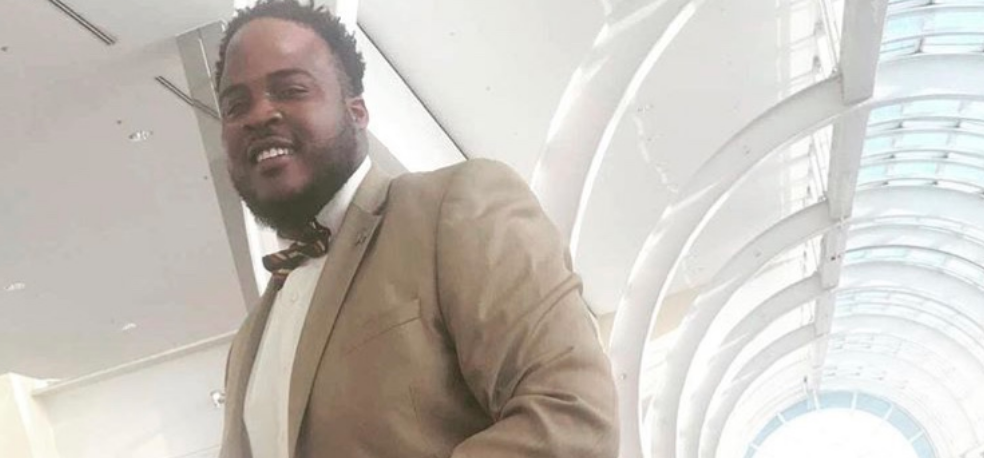I am one of six kids. Growing up in a community riddled with drugs, gangs, and violence, we overcame many obstacles. This resulted in many adverse childhood experiences. Some obstacles included foster care and lack of household financial security.
At a very young age, my siblings and I became resourceful to generate income to fill the gap of our economic insecurity. We would mow neighbor’s lawns, pump gas, sell candy, and carry groceries to generate income for our household. Although my mother and stepfather were very strict on us in order to keep us safe outside our home, they were not able to support or advocate on our behalves for academic, economic, or health care resources to meet all our needs.
During elementary school, I excelled academically. I even delivered the sixth-grade graduation speech and received an academic excellence award. The next year in the seventh grade I was held back. Although I did well on standardized tests, I was not performing well in class and the teachers, without making a real effort to find out why, held me back. Then halfway through my second year of seventh grade, the school kicked me out and sent me to another school. Without a parental advocate, I decided to advocate for myself to be placed in the eighth grade. I’m aware that self-advocacy is something most kids that age would not do, nor do school administrators have to take their requests seriously, but my vice principal did.
I went on to be one of two out of six siblings to graduate from a traditional high school. Had I not been able to graduate on time I am almost positive I would have dropped out. In California, only about fifty percent of students who experience foster care graduate from high school. Like the experiences my siblings and I had, many foster care students are not receiving the resources and support they need to succeed academically.
The health care infrastructure has also failed my family. Two of my siblings passed away as young adults. Mental illness claimed my brother’s life in 2007. He didn’t have any access to mental health resources.
In the U.S, mental illness is an increasingly widespread issue, with kids and adults committing suicide at a rate of 45,000 per year. My youngest sister died receiving care for a non-life-threatening medical need, which reflects the statistics of black patients dying in far greater numbers than their white counterparts, regardless of socioeconomic status, after receiving this care. Many studies show black people get less access to surgical interventions, diagnostic tests, medical services, and less optimal interventions than white folks.
Seeing and experiencing these outcomes firsthand has always motivated me to pursue a career in advocacy and advocate for policies that improve the academic, economic, and health outcomes for underserved and underrepresented communities.
Although there is so much work to be done in order to achieve sustainable systemic change, it is important to have clear objectives and outcomes to measure success. In order to address these areas of opportunity, I know it is important to be informed and to inform others on ways to get involved and how to make tangible change. An example of this is the organizing that the took place in order to pass the Affordable Care Act. The outcome has given many people access to affordable health care. This was done through campaigning for legislation, spreading awareness and holding elected officials accountable. For all other health, educational, and economic disparities we have to continue campaigning for legislation, spreading awareness, and holding elected officials accountable until we get the most optimal outcomes for the individual and the environment.
My family’s experience has funneled my passion to pursue a career in the field of urban sustainability planning and continue advocating in my community. I want to collaborate in building infrastructure that is sustainable and provides access to resources that allow underserved and underrepresented communities to thrive in an equitable urban environment. These communities deserve to have resources that allow them to succeed in academics, economics, and health no matter their socioeconomic background. As a young advocate, I hope to influence these legislative conversations to address the outcomes experienced by my family and countless other families.
I’m committed to continue using my passion to identify those objectives in the areas that affect families like mine. Issue by issue I plan to make a change, so let us do it together!
Ronnell Hampton is an urban sustainability planner, writer, and podcaster. He is the Founder of Growing Greatness, an organization dedicated to facilitating environmental and social justice through workshop development, diversity training, and small community development projects. He is a master’s graduate currently pursuing an architectural drafting and design professional certification. As a young advocate, he advocates for issues that affect young adults, underserved and underrepresented communities. He’s passionate about making a change.

